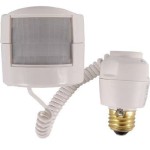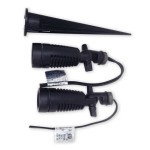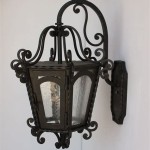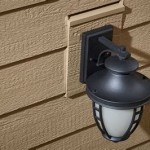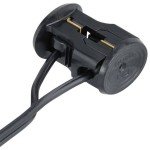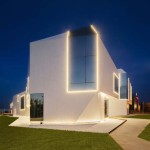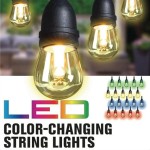Installing LED Strip Lights Outdoors: A Comprehensive Guide
Transform your outdoor spaces with the vibrant illumination of LED strip lights. These versatile and energy-efficient lights offer endless possibilities for enhancing the ambiance and functionality of your exterior décor. Installing LED strip lights outdoors requires meticulous planning and careful execution to ensure optimal performance and durability. This guide will provide you with a step-by-step approach to ensure a successful installation.
1. Choosing the Right LED Strip Lights
Selecting the appropriate LED strip lights for outdoor use is crucial. Consider factors such as:
- Waterproof Rating: Opt for IP65 or IP68 rated LED strips, which are designed to withstand rain and moisture.
- Brightness: Determine the desired brightness level based on the intended application. Higher lumen outputs provide brighter illumination.
- Color Temperature: Choose warm white (2700K-3000K) for cozy ambiance, neutral white (4000K-4500K) for general lighting, or cool white (5000K-6500K) for task lighting.
2. Surface Preparation
Before installing LED strip lights, ensure the surfaces are clean, dry, and free of any debris. Rough surfaces may require sanding for proper adhesion. Wipe the surfaces with rubbing alcohol to remove oils and contaminants.
3. Mounting the LED Strip Lights
Use 3M adhesive backing or mounting clips to attach the LED strip lights to the desired surfaces. Ensure the strips are securely fastened to prevent sagging or detachment. Space the strips evenly to achieve uniform illumination.
4. Connecting the Power Supply
Connect the LED strip lights to a suitable power supply, such as a 12V or 24V transformer. The transformer should provide sufficient voltage and amperage to power the strips. Use waterproof connectors to protect electrical connections from moisture.
5. Waterproofing the Strip Lights
If the LED strip lights are not inherently waterproof, consider applying a waterproof sealant or silicone coating along the exposed edges and connections. This will prevent water ingress and extend the lifespan of the lights.
6. Testing and Troubleshooting
Before completing the installation, test the LED strip lights to ensure they are functioning properly. If any issues occur, check the connections, power supply, or the LED strips themselves. Contact the manufacturer for assistance if necessary.
Additional Tips
- Use a diffuser strip to soften the light and eliminate glare.
- Control the LED strip lights with a dimmer or remote control for adjustable brightness and ambiance.
- Consider using a motion sensor to automatically activate the lights upon movement.
- Regularly inspect the LED strip lights for any loose connections or damaged components.
By following these guidelines, you can successfully install LED strip lights outdoors and enjoy their transformative effects. Enhance your outdoor spaces with the vibrant illumination and energy efficiency of LED strip lights, creating inviting and functional environments.

The Complete Guide To Outdoor Led Strip Lights Lighting Access

7 Things To Know Before And Installing 12v Led Strip Lights

How To Choose And Install Led Garden Lights

Super Clean Diy Outdoor Led Lighting

How To Choose And Install Led Garden Lights

The Easy Installation Of Led Strip Lights Ledmyplace

Installing Led Strip Lights Superlightingled Com Blog

Step By Guide Installing Outdoor Lighting Around Your Home Govee

Designing And Installing Led Strip Tape
Diy Led Accent Lights For Your Home A Step By Guide Vcloudinfo
Related Posts
